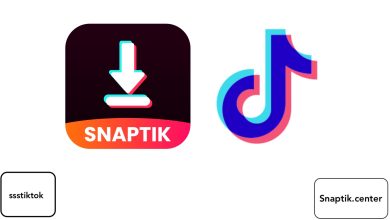The Future of Business Communication: Cloud Phone Systems
Cloud Phone Systems

As companies and workers become increasingly comfortable with remote work, they need simple yet effective communication tools to collaborate seamlessly. That’s where cloud phone systems come in. Hosted by service providers, these solutions eliminate complex physical PBX hardware and reduce upfront implementation costs. They also take responsibility for ongoing updates, allowing customers to focus on what’s most important for their business.
Scalability
With a cloud phone systems, business telephony is centrally managed by service providers, who oversee the implementation and ongoing maintenance. This shifts the responsibility from customers and IT teams to a central team, enabling businesses to visit and avoid the costly upfront investment of purchasing hardware and installing additional physical lines. The scalability of a cloud phone system means you can add features as your business grows.
For example, you can upgrade your broadband plan to allow higher-quality calling or integrate the solution with customer relationship management systems to automate and streamline call processes. Furthermore, the solution can be used on multiple devices, such as desktop computers, mobile phones, and fax machines. This makes it easy for remote and blended teams to connect to the same business number, even during inactive hours.
Mobility
Unlike traditional phone systems, cloud-based ones don’t require onsite servers to handle call routing. This cuts the cost of hiring a dedicated IT staff and buying equipment. By logging in to the same account, you can access your call logs and other features on multiple devices, such as desktops and mobile phones. This helps your team stay connected even when they’re away from the office.
With the help of cloud-based communication software, you can automate your business processes to improve efficiency. For example, you can use an auto-attendant to greet your callers and direct them to the correct department. You can also integrate your cloud phone systems with CRM and other business tools to boost customer service. You can also use voice analytics to assess the success of your callers and see areas for improvement.
Convenience
Cloud phone systems do not require complex physical PBX hardware onsite to work. They connect with mobile devices, landlines, and computers via VoIP. This enables business owners to access their calls remotely and work from home with an internet connection. Integrated CRM and communication APIs offer remote teams the tools they need to support their customers.
Callers can be transferred to a customer service agent with instant access to their entire history of interactions or scheduled for a callback at a time that works best for both parties. Call analytics allow you to see how well your team is performing and where there might be room for improvement. Moreover, integrated AI facilities offered by some providers can convert speech-to-text, perform sentiment analysis, and more.
Analytics
Many cloud phone systems have a suite of tools that can help boost productivity and efficiency in the workplace. They also come packed with various call-handling features like automated call queuing and personalized greetings. The technology behind a cloud phone system works by breaking up voice data into small packets that travel over the internet and are reassembled when received.
Businesses can access their phones from anywhere with stable and reliable internet speeds. The best cloud communication solutions will support your business needs and goals. Choose a provider that offers a comprehensive suite of features to meet your team’s unique needs and supports remote working environments. You should also ensure that your selected solution has robust security protocols and compliance monitoring to protect your data.
Integrations
Using a cloud phone systems, business owners can customize the features they need to support their work processes. They can use caller ID to display their company’s name for outbound calls or implement a customizable blocklist and allow the list to manage incoming calls.
They can also set up a system that automatically routes calls to different departments or agents based on availability. Unlike PBX systems that require a physical hardware solution onsite to handle business calls, a cloud phone system is hosted off-site by the service provider. This shifts the responsibility of managing the system to the service provider, eliminating upfront costs and saving on maintenance expenses.




